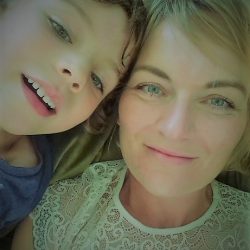Newborn babies don’t do very much but what happens inside their brains is extraordinary-even before they are born. In fact, during the second trimester, a baby’s brain is creating 250,000 brain cells every single minute. By the time baby is born, there are 86 billion of them in there. Your baby’s brain is amazing!
Most people are surprised when I tell them that the brain of a newborn does not have the ‘cauliflower’ appearance that we associate with a brain. It actually looks like a smooth grey jelly, but develops so rapidly within the first three years of life that it actually doubles in size!
The skull fuses at around 18 months, while the brain continues to grow. It then crunches up so it can fit inside the skull, and only then takes on the appearance of a typical brain…
BUT… How well a baby’s brain develops is hugely dependent on the environment… In recent years, neuroscience has dispelled the myth that whatever happens to babies before their ‘thinking brain’ develops doesn’t affect them hugely later in life.
On the contrary, there are very important lessons about how a baby’s earliest experiences; in some cases before they’re born, or their actual birth; can impact their development throughout life.
With this in mind, here are some ‘must-know’ truths about just what’s going on inside your little one’s head, and-most importantly-some insights into how you can help their little brains to help them become big, strong brains that can thrive, for life…
Your baby’s senses are a mess when they’re born, and an enriched sensory environment is essential in helping the different sensory areas of the brain to develop. This doesn’t mean overloading them with stimuli, but ensuring that their what they can see, hear, smell, taste and feel is interesting; that they can fully explore how their bodies work; and how they can relate to and interact with the world and the other people in it.
The Great Outdoors...
A baby’s eyes need to focus on far away objects to develop good vision. ‘Myopia’ (near-sightedness) in children in the UK has increased significantly in recent years; the speculated caused being kids spending too much time in front of a screen-at a younger age than ever-and not enough time outside… So get your babies experiencing the great outdoors!
Baby Talk...
Little children rely on the ‘bold regular patterns’ in speech to help develop their language skills. This is why we automatically talk to our babies in sing-song tones, and why they love- and benefit enormously from- nursery rhymes and singing.
There is a lot of background noise in our environments these days, but cutting these out where you can really help your baby to tune into the patterns of your speech and start identifying words, which can give them a head start when it’s time to start talking.
Three Dimensional Bodies...
All babies are born with a set of ‘primitive reflexes’ which support their physical development. These automatic responses switch off as baby starts to take control of her body, but some of these reflexes will not switch off without adequate stimulation.
For example, the ‘Palmer’s Grasp’ reflex ensures a newborn will wrap his fingers around anything placed in his hand. A few months later, when it’s time to start crawling, the Palmer’s Grasp need to have switched off so he can place his hands flat on the floor. That means lots of stimulation to the palm of the hand in those early months, so both tummy time and object handling have a very important part to play.
Primitive reflexes which don’t switch off can affect later development; for example, a child with a ‘retained’ Palmer’s Grasp will automatically wrap her fingers around a pencil, compromising her ability to learn to write. So, by enabling your baby to fully explore the relationship between her body and space, you are doing wonders for her journey throughout childhood.
The Power Of Relationship...
The most important aspect of a baby’s brain development is their social & emotional environment… The power of engaging baby in high quality, loving eye contact and social interaction cannot be underestimated. Their brains are wired to lock into your interest, and are highly attuned towards positive attention, and social & emotional feedback…
Children also build essential, lifelong skills such as problem solving and decision making in the social & emotional brain area, so we can’t do this enough!
Better still, these lovely experiences set our children up with the ability to receive high levels of emotion.
This means that, as they develop through childhood, they’ll be able to manage lots of pleasure, fun and excitement without becoming overwhelmed and unregulated.
Fundamentally, the most important ingredient in the development of any brain is LOVE.

Jo is the founder and owner of Well Within Reach and specialises in supporting both professionals and parents with healthy child development, especially social & emotional wellbeing.
She is especially determined to help grown-ups demystify the wonders of their children’s developing brain, helping them to parent with insight, knowledge & reassurance and with less of the stress, guilt & guess work that so often come with parenting.
